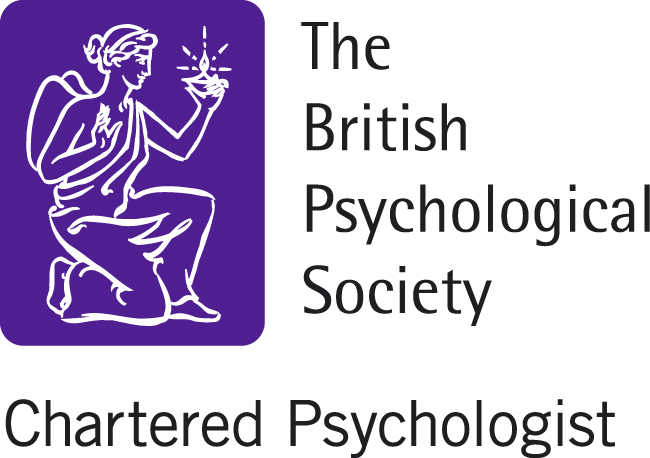Adult Autism Assessments
Gain insight into your unique patterns, celebrate your strengths, and explore whether autism could provide a helpful framework for understanding your experiences

As awareness of neurodiversity continues to grow, more people are discovering that their long-standing patterns, preferences and ways of navigating the world are related to their experience of being autistic.
Autism reflects a distinct way of experiencing, processing and relating to the self, other people and the world. Autism is a natural and valuable variation in human neurodiversity. Autistic individuals may experience a heightened awareness of sensory input, engage deeply in areas of interest, value structure and routine, and have distinct, often authentic approaches to social communication and interaction.
My experience of listening to many autistic people has helped me to understand that there are great gifts and strengths associated with the experience of being autistic, alongside some challenges. We aim to explore both aspects in our assessment process.
Our autism assessment process can help to bring clarity and understanding to your lived experiences. Here at Join Psychology, we specialise in autism assessment/discovery and believe that the process should be a reflective and affirming exploration of your patterns, preferences and needs.
You may have lots of questions about the autism assessment process, so I've listed some commonly asked questions and their answers below. If you have other questions, please get in touch with me and I'm happy to help.
Why has autism been missed in some people?
In the past, the understanding of autism was quite limited, often shaped by narrow stereotypes that did not capture the full diversity of autistic experiences. This led to many autistic people being misunderstood and their unique needs overlooked, resulting in missed opportunities to recognise them as being autistic.
Missed recognition of autism can occur in individuals of all genders, but it has been particularly common among women, girls and gender-diverse people. This is because autism expresses itself in a variety of ways and some people, particularly women and girls have learned to camouflage their differences.
What are your waiting times for assessment?
Our assessment process has been carefully developed to ensure it is structured, comprehensive, and efficient. This allows us to offer timely appointments, typically within a few weeks, while still providing the depth, care, and professional integrity you can expect from Join Psychology.
What are the potential benefits of an autism assessment?
The potential benefits of an autism assessment can include:
- A better understanding of yourself, your patterns and preferences.
- Helping others to understand you and your needs.
- Rediscovering and connecting with your strengths.
- Access to the right kind of support from health professionals.
- Connecting with a community of neurodivergent people who may share similar experiences and can offer support.
What are the potential downsides of an autism assessment?
The potential downsides of an autism assessment may be:
- The assessment process is thorough and detailed which can be tiring and emotionally demanding for some people.
- The outcome of an autism assessment can affect people in different ways. A diagnosis of autism may or may not be made. Some people can experience strong feelings about the outcome.
Can you tell me more about the autism assessment process?
An autism assessment with me and my team at Join Psychology is fully compliant with the National Institute for Health & Care Excellence (NICE) guidance which outlines the standards for autism assessments. In addition, our assessments are designed with a neuroaffirmative approach and carefully adapted to capture the diverse ways in which autism can present.
We understand that the idea of an assessment can feel intimidating and a little overwhelming. My team and I will work with you to make sure you feel comfortable and confident during the assessment. Assessments are LGBTIQA+ affirmative, to ensure everyone feels comfortable every step of the way. We can also make adjustments to the assessment process to help you feel more comfortable. Contact us to discuss what adjustments you might need and we can also provide some examples of changes we can make to ensure the assessment process suits your needs.
The process can be flexible to suit your individual needs and concerns, working either online or in person. The main steps in our autism assessment process are outlined below:
- Step 1 - Initial consultation: We will meet to talk about your reasons for wondering whether you are autistic and take some background information. I'll also ask you to complete and return some forms and questionnaires before we meet. We'll then decide if there is a clear reason for you pursuing a full autism assessment and discuss the options for you.
- Step 2 - Forms, questionnaires and background information: I'll ask you to complete and return a few more forms and questionnaires which help you to reflect on your experiences relating to possible autism. I'll also ask you to share any other relevant background information, such as school reports and letters/reports from health care professionals you've seen in the past.
- Step 3 – Assessment interview: I'll meet with you and someone who knows you well to talk about your experiences relating to possible autism throughout your life. The term ‘interview’ sounds a bit formal – this is more like a guided conversation.
- Step 4 – Observational task-based assessment: You'll meet with another clinician from the Join Psychology team to complete an observational task-based assessment called the Autism Diagnostic Observation Schedule (ADOS). This includes talking and some tasks.
- Step 5 - Feedback session: We will meet to talk about the outcome of the assessment and discuss recommendations for you.
- Step 6 - Report: I will write a full report summarising the information gathered, the conclusion and recommendations.
Do you offer dual/combined assessments of autism and ADHD?
Yes, Dr Jo is able to assess autism and ADHD together (also known as AuDHD) if you believe you might be autistic and/or have ADHD.
You say you specialise in women – do you assess men as well?
Absolutely – yes, I do. My work has a strong focus on supporting women and girls because their experiences are often under-recognised, but I very much welcome men too. Many men also find themselves questioning whether autism (and/or ADHD) might explain some of their lifelong patterns, strengths, and challenges, and I am always glad to support them in exploring this. The assessment process I offer is the same for everyone: thoughtful, respectful, and tailored to each person’s story. If you are a man considering an assessment, please know you will be met with the same warmth, care, and attention to detail. You are very welcome here.
Will an autism assessment always lead to a diagnosis?
An autism assessment may not always lead to an autism diagnosis. The assessment gathers all the relevant information to help the clinician decide whether they think you meet the diagnostic criteria for autism. Sometimes, a diagnosis of autism will be made and sometimes, no diagnosis will be made. In some circumstances, the assessment may be inconclusive, for example, if there are gaps in the information available or limited collateral/supporting information. I will make suggestions relating to what might explain your experiences and help you in future, if these are clear in the assessment.
Do you offer post-diagnostic/discovery support and/or therapy?
I specialise in working therapeutically with neurodivergent people and can provide follow-up therapeutic support to you and those who support you. There is often a waiting list for this type of work with me, or I can suggest some other professionals who can offer post-diagnostic/discovery work and therapy.
Post-diagnostic/discovery sessions and therapy can be delivered flexibly, in a combination of either one to one, couple or family sessions, depending on your needs and preference. Sessions take place either online or in-person in Swallowfield, Berkshire.








